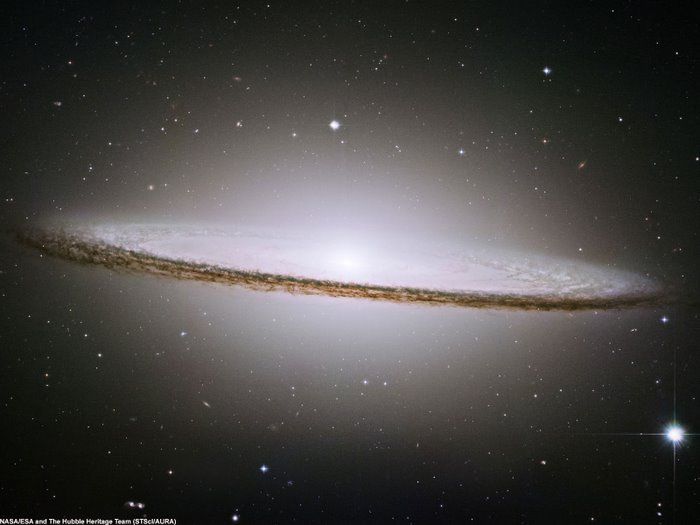..that I posted today on the Everything List. MWI stands for the "Many Worlds Interpretation" of quantum physics. Ensemble theory is a theory that everything that can mathematically or logically exist does exist somewhere.
***************************************************
“I've no idea why we might be being simulated if we are being simulated. It is actually very arrogant to assume that we are somehow the centre of the simulation at all, like bacteria in my gut assuming that the universe, the solar system, humans were made for their benefit. “
Stathis Papaioannou
I have a problem with the very premise of asking why we are being simulated. Having been a member of this list for years, I have seen objections to the simulation argument raised repeatedly that are along the lines of “it is presumptuous to assume anyone would want to simulate us,” or “it is entirely speculative and not based in science”, etc. I have also seen a fair amount of discussion about how the simulation could be done.
To me, the logical chain is straightforward. If you accept a MWI interpretation or some other ensemble theory, then everything that can happen does happen. There is maybe a little wiggle room here, as perhaps you can have a MWI with an enormous number of universes versus and infinite number, depending on the nature of the underlying implementation, but as I understand it from earlier discussions and from my reading, most interpret MWI as requiring an actual infinity.
Now, after you have the MWI as the underlying foundation, there is really only one additional question that needs to be answered. Is there something fundamentally primitively “physical” and non-reproducible about my existence that would forever prohibit any attempt at reproduction? When I say “my existence” you have to include two possibilities. First, if you want to hold onto the “primitive physical” viewpoint you have to assume that there is something about the nature of our apparent reality in the third person that is simply not capable of emulation or simulation. Second, you ALSO have to assume there is something about our first person experience that is also not capable of emulation or simulation. This is where the “primitive physical” proponents lose me. I have thought about this a great deal, and just can’t figure out why I should assume there is something so special about my experiences, memories, and thought process that it under no circumstances could ever be capable of reproduction anywhere else in existence (other than the “naturally” occurring copies of myself in other parts of the multiverse, which are of course under this line of thinking occurring at a “primitive physical” level).
I am an attorney, so I guess I look at this at a little different perspective than most on here with science related backgrounds. I think once you get to a certain level, whether it be with MWI, or string theory or any other concept that can not be directly tested or observed, science loses its ability to take you further and you have to look into other areas such as logic and philosophy to finish the journey. However, there is a circumstantial case to be made for things even beyond strict science. For instance, I believe the circumstantial case for our universe being emulable or simulable is strong given what we know about how our universe works so far. The reasons for this have probably been discussed around here extensively, for instance the close relationship between math and physics, and our ability to describe the things we observe in mathematical terms.
To my way of thinking, the opponents to a simulation viewpoint are basically left arguing a concept that there is something “magical” or “spiritual” about human thought. That it is a supernatural function that is forever beyond the realm of science. Either that or they do not accept an ensemble theory. I could not disagree more with your statement that it is “arrogant to assume that we are somehow the center of the simulation.” On the contrary, what is arrogant is to assume that in a universe in which it is possible to simulate environments and universes (and this we know, just check out a Playstation 3 game I will say only partially tongue in cheek), is that we occupy a special location at the very top (or bottom depending on how you look at it) of this hierarchy of natural and artificial creations.
I think one thing that hangs a lot of people up on this concept is the idea that somewhere there IS a primitive, physical universe, and that we are just a digital simulation being run in that “more real” universe. This is NOT necessary nor is it part of my thinking on the subject. Maybe there is some “more real” or “primitive physical” reality out there that is simulating our entire quantum mechanical multiverse, but this is entirely speculative and presumably beyond the realm of any potential scientific discussion. When I refer to our being simulated, I am assuming the simulation is occurring in every way that is logically and physically possible in the multiverse, just as every other part of the multiverse is being likewise simulated in every way that is logically and physically possible in some other part. This is required, in fact is logically necessary if you assume it is capable of simulation.
That is as far as I think logic can take us. All the different theoretical ways that we can be emulated or simulated or of course interesting discussion. Why some intelligent beings in some other part of the multiverse may want to simulate or emulate our part of the multiverse is interesting as well, but is entirely unrelated to the logic of whether the entire entity is at least in part a simulation as set forth above.
Danny





